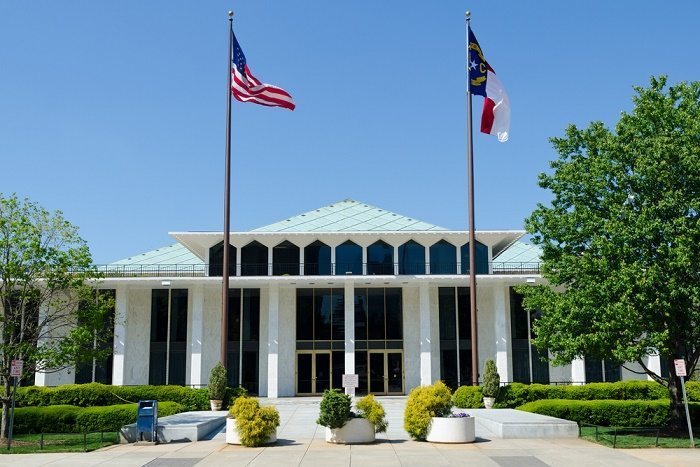North Carolina Republicans Pass 72-Hour Waiting Period Bill
The bill will now go before the state senate—also majority Republican—where it is expected to pass.

The Republican-dominated North Carolina state house on Thursday approved a bill requiring a 72-hour waiting period before getting an abortion. HB 465 passed the house in a 74-45 party-line vote.
The bill will now go before the state senate—also majority Republican—where it is expected to pass.
North Carolina already has a waiting period law on the books. That measure, the “informed consent to abortion” law, requires that a pregnant person meet with her physician at least 24 hours before getting an abortion. HB 465, introduced in early April by four Republican representatives, would increase the waiting period to 72 hours.
Speaking on the house floor, anti-choice legislators framed the measure as a way to empower women and said that the bill will give pregnant people seeking abortions necessary time to think about their decisions.
“The poorest decisions that we make are the ones we make under pressure and on impulse,” bill sponsor Rep. Jacqueline Schaffer (R-Mecklenburg) said in a statement before the house. “We want women to be equipped with the right information as they are going to make that decision.”
Rep. Michele Presnell (R-Burnsville) echoed that sentiment.
“Seventy-two hours is only three days. I think that’s a good amount of time,” Presnell said. “These young girls, when they go in there—very abrupt, very quickly—they make that decision that they’re going to get rid of this baby.”
Reproductive rights advocates contend that waiting periods place an arbitrary, medically unnecessary standard on people choosing to get an abortion.
Democratic Rep. Gale Adcock, a nurse practitioner, told the house that radical waiting period laws are demeaning to anyone seeking abortion care.
“I try very hard to make decisions based on evidence, and I think this bill makes an unfortunate and inaccurate assumption, that women haven’t spent sufficient time thoroughly considering their needs, their desires, their options,” she said. “The change proposed in this bill extends the state’s timetable, not a medically necessary timetable. It’s not about knowledge, it’s about delay. It’s about medically unnecessary delay.”
Twenty-six states have waiting period laws on the books, most of which require a pregnant person meet with her doctor 24 hours before getting an abortion. North Carolina would join three states—South Dakota, Utah, and Missouri—with 72-hour waiting periods.
“Mandatory delays such as these create additional burdens for North Carolina women, especially women in rural areas who have to travel many hours to reach a health-care provider, and for women who do not have the resources to take extra time off work or pay for child care,” said NARAL Pro-Choice North Carolina. “Mandatory-delay laws such as this endanger women’s health by creating unnecessary burdens that can impede earlier, and therefore safer, abortion care.”
HB 465 will require physicians performing abortions after 20 weeks of pregnancy to send ultrasounds and gestational age measurements to the state’s Department of Health and Human Services.
A controversial provision of the bill, which gained national attention at its introduction, was removed by a legislative committee this month.
That measure would have banned doctors who aren’t licensed as obstetricians or gynecologists from performing abortions, and would have banned health-care facilities owned by the University of North Carolina or the East Carolina University systems from performing abortions.
